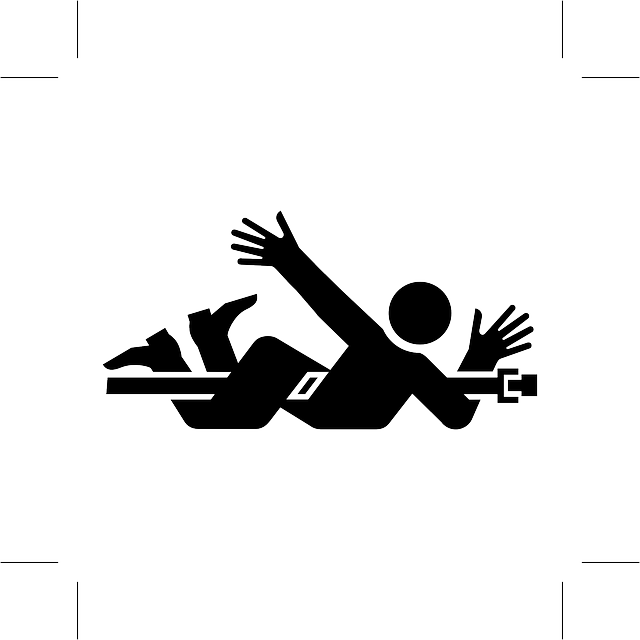Medical records are essential during the injury claim process, especially in complex cases like truck accidents or wrongful death claims, providing critical insights into a patient's health history, treatments, diagnoses, and prognosis. These detailed reports help establish harm extent, treatment necessity, and overall impact on victims' well-being, ensuring fair damage assessment and supporting clients in receiving adequate compensation. Accurate records are crucial for legal professionals to construct compelling narratives, proving liability and quantifying damages, ultimately guiding clients toward just compensation.
Medical records play a pivotal role in the injury claim process, serving as indispensable evidence for compensating victims. Understanding their significance is crucial for both claimants and insurance adjusters. This article delves into the intricate relationship between medical records and injury claims, exploring how these detailed documents facilitate a smoother, more accurate process. We also examine the importance of meticulous record-keeping and the challenges associated with ensuring accuracy, underscoring the vital role they play in navigating the legal landscape.
- Understanding Medical Records in Injury Claims
- How Medical Records Facilitate the Claim Process
- Importance and Challenges of Accurate Medical Record Keeping
Understanding Medical Records in Injury Claims

Medical records play a pivotal role in the injury claim process, serving as crucial documentation that supports individuals seeking compensation for their injuries. These detailed reports, maintained by healthcare providers, offer an insightful glimpse into a patient’s medical history, treatments, diagnoses, and prognosis. When an individual sustains an injury due to someone else’s negligence, such as in a truck accident, these records become essential evidence. They help establish the extent of the harm caused, the necessity of medical care, and the overall impact on the victim’s well-being, which is critical for building a compelling case.
In personal injury claims, especially complex cases like wrongful death claims, having comprehensive and accurate medical records can make or break a claim. They provide an objective account of events, enabling insurance companies and legal representatives to assess damages fairly. A truck accident lawyer, for instance, would rely on these records to gather evidence, interpret treatment plans, and argue for appropriate compensation, ensuring that their client receives the legal representation they deserve during this challenging time.
How Medical Records Facilitate the Claim Process

Medical records play a pivotal role in facilitating the injury claim process by providing comprehensive and detailed evidence of an individual’s health status before, during, and after an incident. These records serve as a reliable source for establishing the nature and extent of injuries sustained, offering crucial insights that can significantly impact the outcome of a claim. For instance, in cases involving truck accidents or nursing home neglect, medical documents help demonstrate the cause of injury, track the progression of treatment, and ultimately support the argument for compensation.
They also aid in verifying the diagnosis and treatment plans, which is essential when navigating complex legal procedures. A skilled truck accident lawyer or legal professional representing a client in employment disputes or nursing home neglect cases can effectively utilize these records to construct a compelling narrative, ensuring a stronger claim. By presenting accurate and up-to-date medical information, the process becomes more streamlined, increasing the chances of a favorable outcome for the claimant.
Importance and Challenges of Accurate Medical Record Keeping

Maintaining accurate and comprehensive medical records is paramount during the injury claim process. These records serve as a critical narrative of an individual’s health journey, detailing the circumstances leading up to and following an injury. For instance, in cases of nursing home neglect or slip and fall incidents, meticulous documentation can be instrumental in proving liability and quantifying damages. Medical records provide concrete evidence of injuries, treatment plans, recovery progress, and potential long-term effects, all of which are essential for building a strong claim.
However, the process of accurate medical record keeping presents significant challenges. Timely submission, proper organization, and accessibility during legal proceedings can be difficult to manage. With vast amounts of data generated, healthcare providers must ensure records are clear, concise, and formatted in a way that complies with legal standards. Moreover, patients’ rights to privacy and confidentiality add another layer of complexity, requiring strict adherence to HIPAA regulations. An auto accident lawyer, for instance, relies on these records to reconstruct the events leading to their client’s injury and guide them toward just compensation.
Medical records play a pivotal role in the injury claim process, serving as invaluable evidence that facilitates efficient and accurate assessment of claims. Their detailed documentation of medical history, treatments, and diagnoses streamline the verification process, ensuring fair compensation for those injured. Effective medical record keeping is essential to navigating the complexities of injury claims, helping to secure favorable outcomes for claimants while mitigating potential challenges.






